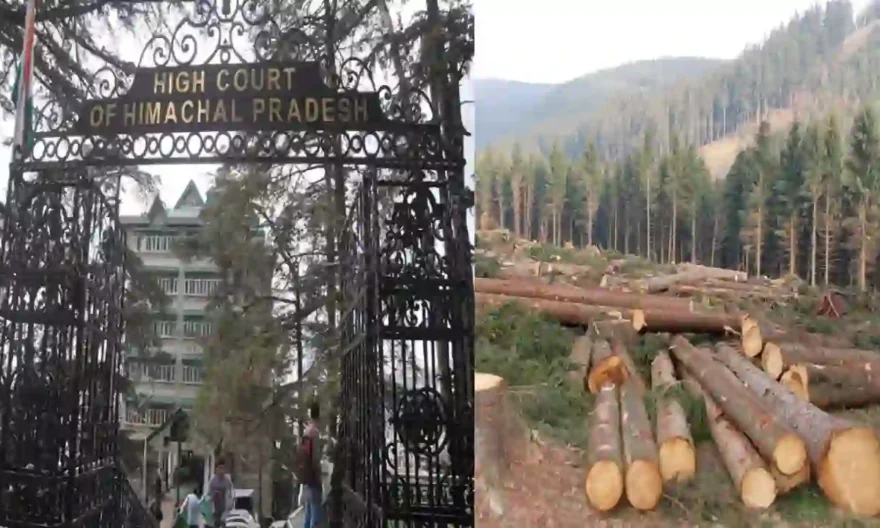
The Himachal Pradesh High Court ordered the state government to develop a policy for hill conservation, preservation, and cutting within two months in consultation with the Department of Environment, Science, and Technology, as well as any other departments that may be required.
The order was issued by a bench comprised of then Chief Justice A.A. Sayed and Justice Jyotsna Rewal Dua, during the hearing of a PIL in which the petitioner had highlighted the indiscriminate and haphazard constructions on either side of the road stretching 6 kilometres between Village Kheel Jhalsi and Village Kainthari (including Village Koro) in Solan District.
In an earlier order dated 27.09.2022, the bench had expanded the PIL’s scope to cover the entire State of Himachal Pradesh after seriously considering the issues raised. This was done to ensure that the construction and development activities, particularly those that involve cutting and chopping the hills were regulated by the State and its officials.
The court noted that many trees are being felled or damaged during the course of carrying out such constructions, which negatively impacts the environment and ecology of the area. It expressed its concern with regard to the uncontrolled and unsafe construction of buildings over slopes, by cutting hills, which primarily involves felling trees, leads to landslides, and has created extremely vulnerable environment in the State.
Pointing out to the inaction and failure on the part of the state government and its authorities, including the local authorities, to control the haphazard and indiscriminate development activities and in discharging their statutory duties under the Panchayati Raj Act and the Environment (Protection) Act, 1988 and the constitutional obligations under Article 48-A of the Constitution of India, the Court observed,
“The state, as a trustee, is under a legal duty to protect the natural resources and the environment and prevent its degradation under the “Public Trust Doctrine’. Moreover, there has been non-observance of principles of sustainable development as well as precautionary principle by the State.”
It said the state, as a trustee, is under a legal duty to protect the natural resources and the environment and prevent its degradation under the ‘public trust doctrine’. If there is risk of severe damage to humans and environment, absence of incontrovertible conclusive or definite scientific proof would not be a reason for inaction.
The court accordingly ordered that no hills in Himachal Pradesh may be cut without the director’s approval, who will first request a report and “no objection certificate” from the Pollution Control Board before providing such authorization.




